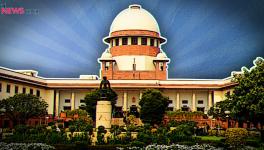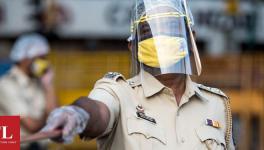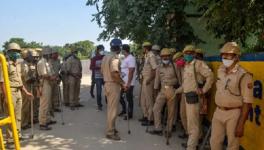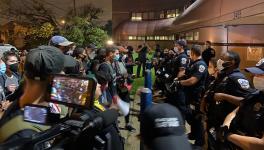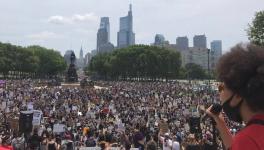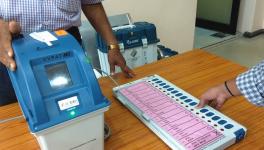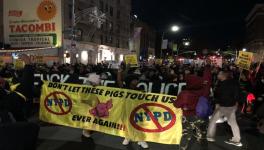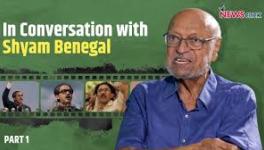33% Policemen Condone Punishment by Mob in Cow Slaughter Cases: Report
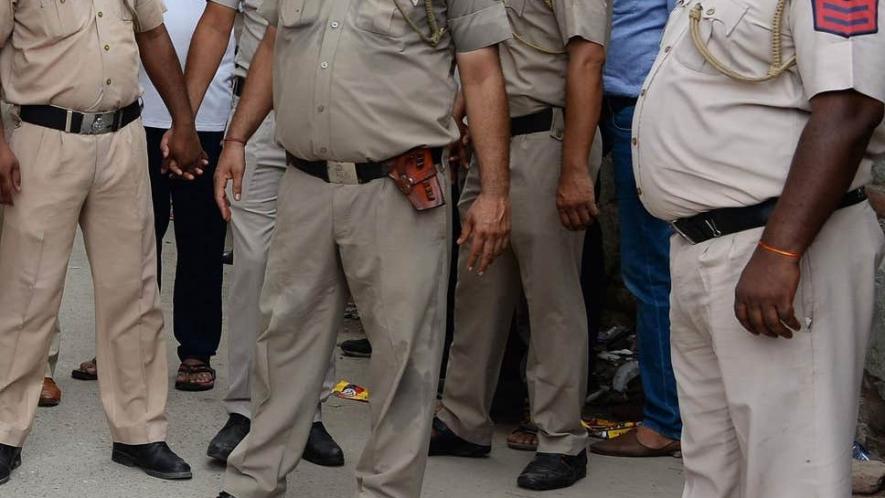
Image for representational use only.Image Courtesy : The Independent
A nationwide survey conducted among 11,000 police personnel has found that every one out of two policemen thinks that Muslims are likely to be prone to committing crimes. Status of Policing in India Report 2019, prepared by the Centre for Studies in Developing Societies and Common Cause also found that 33% of policemen believe that it is natural for a culprit to be punished by a mob if he is accused of 'cow slaughter'.
The survey noted that the perception was more stronger in Hindi heartland states such as Uttar Pradesh, Bihar and Jharkhand. The report stated, "The perception of a community being naturally prone towards committing crimes was the highest for Muslims, with roughly 14 percentof the police personnel holding the opinion that Muslims are very much naturally prone towards committing crimes. To put it in a comparative context, about six percent of the police reported that upper caste Hindus are very much naturally prone towards committing crimes. This situation of perceiving Muslims as being naturally prone towards committing crimes was worse in the Hindi-heartland States of Uttarakhand, Uttar Pradesh, Bihar and Jharkhand. It was equally bad in Karnataka and Maharashtra."
The surveyors also found another disturbing trend among policemen when they posed the question regarding the response of police officials in situations like aftermath of a cow slaughter. The question asked was, “In your opinion, to what extent is it natural for the mob to punish the culprits on their own when there is a case of cow slaughter?” The choices for the respondents were “to a large extent”, “somewhat”, “rarely” and “not at all”.
The survey corroborated the trend of mob lynchings with inaction on part of police officials at the time of incident. Consider this. Jharkhand had the highest percentage (66%) of personnel who said such violence was natural (“to a large extent” or “somewhat”), followed by Madhya Pradesh (63%), Karnataka (57%) and Andhra Pradesh (52%). West Bengal had the least (3%), followed by Nagaland (4%) and Punjab (9%). Notably, Jharkhand has consistently remained in news over incidents of mob lynchings following purported rumours about smuggling of cows, practising black magic and child abduction.
The survey's findings regarding police inaction in cases related to mob lynchings could be easily bolstered by cases such as Rakbar Khan's lynching – where police officials allegedly delayed helping he victim, who succumbed to his injuries later. However, in this context, the most shocking news had come from Rajasthan when the police officials booked Irshad and Arif Khan as the accused for smuggling cows, whereas their father, Pehlu Khan, had become a victim of mob lynching.
Interestingly, the surveyed policemen believed that the police should have the right to mete out the punishment in minor offences rather than pursuing a long legal battle. The survey also revealed that 72% policemen experience political pressure while conducting an investigation involving influential persons. The survey further reported that 28% police personnel believe that pressure from politicians is the biggest hindrance in a crime investigation. The other obstacles cited were related to society, legal systems and internal working systems in police.
Terming the findings disturbing, Justice J Chelameshwar, who was also present at the release of the report, said that a mere training of the Indian Penal Code or Criminal Civil Procedure is not enough. Experts maintain that the survey strengthens the finding of Sri Krishna Commission which had found that the policemen conduct get biased in favour of the majority population in the event of a communal riot.
The report further emphasised that the prime reason behind high prevalence of such perceptions in police officials is rooted in the belief that it is natural for the mob to take law into their own hands and it must be challenged through regular trainings. It read, "While majority of police personnel were found to have received the trainings in human rights, caste sensitisation and crowd control, for a large section of the police, this training was only imparted at the time of joining. These attitudes and opinions could therefore be a reflection of the lack of proper and frequent trainings. Such training, if provided regularly using proper modules, might help not just in softening their preconceived notions towards vulnerable sections of the society, but in also ensuring that such biases do not interfere with proper functioning of the police."
Also read: Bulandshahr Mob Violence: In Open Letter, 83 Civil Servants Seek Adityanath’s Resignation
Get the latest reports & analysis with people's perspective on Protests, movements & deep analytical videos, discussions of the current affairs in your Telegram app. Subscribe to NewsClick's Telegram channel & get Real-Time updates on stories, as they get published on our website.










